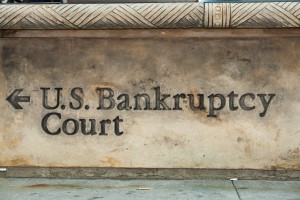By Ryan C. Wood
You must file the late or unfiled tax return as soon as possible no matter how difficult and unpleasant going through that process is for you. I will be providing a number of reasons below for why it is so important to file tax returns on time, or as soon as humanly possible if you miss the deadline to file the tax return. Filing for an extension kicks the can down the road, but at least you will not miss the deadline or be considered to have an unfiled tax return.
As a bankruptcy attorney I have been part of thousands of bankruptcy cases in one shape or form at this point I am of the opinion that most people do not timely file returns because they will owe a significant amount of taxes. A little known fact is that most of our bankruptcy cases whether Chapter 7, Chapter 13 or Chapter 11 involve taxes that are owed to either the Internal Revenue Service or here in California the Franchise Tax Board. TAXES CAN BE DISCHARGED IN BANKRUPTCY. Almost every celebrity bankruptcy involves unpaid taxes. Read some of my other articles about celebrity bankruptcy cases like actress Teri Polo or actor Gary Busey and on and on. Just Google celebrity bankruptcy and Ryan C. Wood. Not filing a tax return for a year you owe taxes is the single worst thing you can do even if you know you are going to owe taxes that you cannot pay immediately. Even if you are going to owe so much you cannot possibly pay the taxes you still need to file your tax returns on time every time to get the best treatment for repayment. When you do not file a tax return on time it starts a chain of events that are designed to make it extremely difficult to get rid of the taxes owed. Please note there is a statute of limitations for taxes owed to the IRS, but that statute of limitations can be suspended or altered depending upon your circumstances and this article is not addressing issues related to the statute of limitations.
Do Not Ignore Notices From The IRS
First off, yes, life is not easy and for whatever reason you did not file your tax return on time. The IRS will give you notice after notice to file your return on your own. If you ignore these notices this will be a big factor in what I will be wrapping this article up with about Substitute File Returns or an SFR. You will be given all kinds of chances to file a tax return even after the deadline to file the return and pay any taxes owed has long passed. Do not ignore the notices you receive in the mail. You will not get a phone call. You will get notices in the mail that you must read and respond to. I tell client after client that you do not want to be in the pile of files that is for people who are not communicating with the IRS. You want to be in the pile of files for people who are communicating with the IRS and working the problem. I know it is not easy. You have to address the problem sooner than later for someone like me to someday make it all go away forever.
So, Have You Ever Heard of a Substitute Filed Return?
I hope for your sake this is the first time you have heard of this. You do not want this period. A Substitute Filed Return (SFR) is what the IRS puts together as best they can with the information they have to file a tax return on your behalf for a tax year you did not file a tax return for. The IRS will only file a SFR when you have ignored them over and over again. The IRS even knows the numbers they use are not completely accurate. The IRS knows certain deductions will not be made and potentially income not counted. The result is a SFR filed by the IRS on your behalf that everyone knows is not completely accurate, but nonetheless you get assessed the amount of taxes they say you owe in the SFR. Once the taxes on the SFR have been assessed you will then be given more notices about your rights to object to the assessed taxes and correct any errors. Again, do not ignore notices in the mail you receive from the IRS. If you again do nothing you have more or less sealed your fate
Why Substitute Filed Returns Are So Dangerous
In my bankruptcy attorney world SFR’s are very dangerous given the current interpretation of the law and whether the taxes owed and assessed from a SFR are ever dischargeable when filing for bankruptcy protection. You have to understand that when all else fails, us bankruptcy attorneys ultimately clean up the mess once and for all, if the law allows. Long story short you should file a tax return for a year the IRS already filed a SFR on your behalf. You must correct their numbers, add income, add deductions and more or less make the return accurate and the amount of taxes you owe accurate. This could lead to the amount of taxes owed to decrease or increase. But what happens to the taxes owed and assessed from a SFR if you file bankruptcy? As mentioned before taxes absolutely can be discharged when filing bankruptcy if the taxes meet certain requirements. The problem right now is that the Ninth Circuit Court of Appeals agreed with the Internal Revenue Service’s interpretation of what the definition of a “return” is when you file your own return after the IRS files a SFR on your behalf. Let me back up a little. The Bankruptcy Code addresses late filed returns and this is part of the issue I am discussing. Taxes owed for a late filed return can in theory be discharged under the Bankruptcy Code, but the requirements are even more narrow or stringent than when a return is filed on time and there are taxes owed. That is the short of it. So, the definition of what constitutes a “return” under the Bankruptcy Code is the issue. The Ninth Circuit Court of Appeals held that the tax return you file with the correct income, correct deductions and therefore correct amount of taxes actually owed may not be a “return” for bankruptcy purposes given this filed return is not an honest and reasonable attempt to comply with the tax laws since the return was late filed . . . . . . Well, that is unfortunately one way to interpret the law and right now that is it. Let me back up again. So you did not file a return, the IRS filed a SFR on your behalf and assessed you some made up amount of taxes, then you file an accurate return to correct the numbers in the SFR and if and when you seek to discharge these taxes owed according to the accurate return you just filed you may not be able to because the fact that the return was late filed and filed after the SFR has been interpreted that your accurate filed return is not an honest and reasonable attempt to comply with applicable tax laws and therefore not a “return” under the bankruptcy code so the taxes owed for that year cannot be discharged. Did that make sense to you? Let me try again. To allow taxes owed for a late filed return to be discharged when filing bankruptcy there has to be a “return” filed. See Bankruptcy Code §523(a)(1)(B)(i).
All this mess of analysis will take place because you did not timely file your tax return. If you had timely filed that tax return the taxes could easily be discharged when filing for bankruptcy protection, assuming the taxes owed meet the normal requirements to be discharged. The IRS will argue that the SFR assessed taxes will not be part of the “return” you later file that actually has the accurate information. You will forever be in the category of a SFR was filed and now there is an issue as to whether your return filed after the SFR is an honest and reasonable attempt to comply with the applicable tax laws. So far convincing the appellate courts that the later filed return is a “return” under the bankruptcy code has not been very successful. It is truly a fact based analysis on a case by case basis. So, again, file your tax returns on time even if you will owe a lot of taxes and if you miss the deadline to file the return or extended deadline to file the return file your return as soon as you can. Do not let the IRS file a Substitute Filed Return on your behalf.


